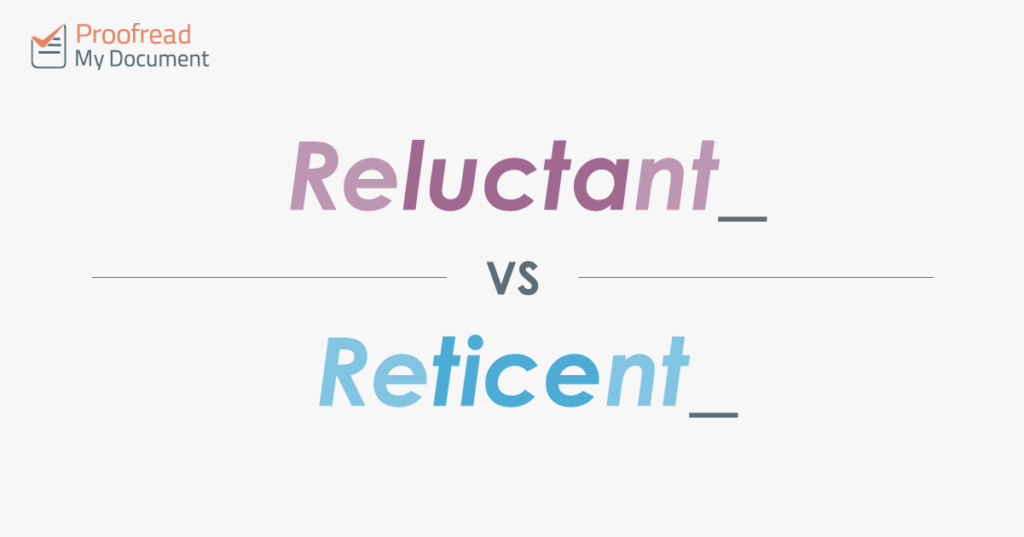‘Reluctant’ and ‘reticent’ are both adjectives related to being ‘unwilling’ to do something. They even look similar written down! It is no wonder, then, that some people use these terms interchangeably.
Unfortunately, there is a subtle but important difference between these words. Consequently, if you want your written work to be error free, you need to know how they work.
Reluctant (Unwilling or Slow to Do Something)
To be ‘reluctant’ is to be unwilling or hesitant to do something. For example:
I was reluctant to leave before the fireworks.
This term can be applied to any situation where someone is resistant to doing something. It can help to think about the origins of this term, which comes from a Latin word meaning ‘struggle’. As such, if we are reluctant about something, we are struggling to bring ourselves to do it.
Reticent (Unwilling to Speak)
While ‘reticent’ also implies being unwilling or hesitant about something, it applies specifically to speaking or revealing our thoughts and feelings:
He was reticent about why he left the party.
Here, we’re not saying that someone was ‘reluctant’ to leave a party. We’re saying he was unwilling to tell us why he left the party. This term can be used, as above, to refer to a specific subject. But it can also be used to describe someone’s character more generally:
Find this useful?
Subscribe to our newsletter and get writing tips from our editors straight to your inbox.
She has been reticent for as long as I’ve known her.
The sentence above, for example, suggests that someone is frequently quiet and reserved.
As with ‘reluctant’, the origins of ‘reticent’ can help us understand how it should be used: ‘reticent’ comes from reticere, which means ‘silent’ in Latin. Thus, if we are being ‘reticent’, we are being quiet about something.
Reluctant or Reticent?
Although some now use ‘reticent’ to mean ‘unwilling’ in general, it would be a mistake to do this in formal writing. Moreover, your writing will be clearer if you use these terms correctly. Remember, then, that ‘reticent’ has a more specific meaning than ‘reluctant’:
Reluctant = Unwilling to do something
Reticent = Unwilling to speak or reveal one’s thoughts
